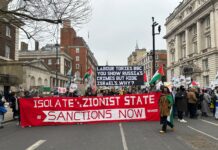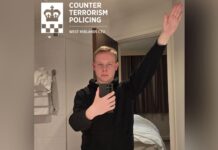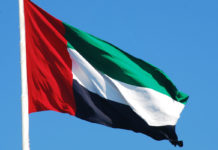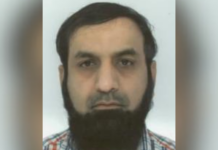Advocacy group CAGE has reaffirmed its opposition to extrajudicial killing after Mohammed Emwazi – aka Jihadi John – was apparently killed in a US drone strike.
A US military source said there was a “high degree of certainty” he had been killed in Thursday’s attack in Raqqa, Syria.
David Cameron said although it was not yet certain whether the strike had been successful, targeting Emwazi was “the right thing to do.”
Emwazi, a Kuwaiti-born British ISIS fighter, has appeared in several gruesome videos of the beheadings of Western hostages and Syrian soldiers. He had openly threatened to bring blood to the streets of Britain.
CAGE caused huge controversy earlier this year when it blamed the security services for helping to radicalise Emwazi, and when one of its spokesmen described him as a “beautiful young man” – although CAGE said the national media had taken the remarks out of their proper context.
CAGE has since clarified that it strongly opposes ISIS and Emwazi’s actions, and today it reaffirmed its opposition to extrajudicial killing of any kind.

“State-sponsored targeted assassinations undercut the judicial processes that provide the lessons by which spirals of violence can be stopped. Emwazi should have been tried as a war criminal,” CAGE said in a statement.
Subscribe to our newsletter and stay updated on the latest news and updates from around the Muslim world!
“CAGE would echo the comments of Diane Foley, mother of James, when she said ‘All people in law enforcement have to be very aware of people’s rights and respect during a very difficult situation…People have the need for respect, no matter who they are and where they are.’”
But CAGE added that it expresses sympathy with the families of Mohammed Emwazi’s victims and said that his killing means crucial questions around his joining ISIS, as well as the kidnapping and killing of hostages remain unanswered.
“The responsibility for the murders of the hostages lies firmly with Emwazi and his ISIS handlers. His journey to becoming ‘Jihadi John’ however, lay in Britain, as correspondence released by CAGE clearly shows.”
Meanwhile, Dr Adnan Siddiqui, Director of CAGE, said: “Killing Emwazi is evidence that the US and UK do not consider the families of hostages in their actions. This is backed up by reports that US authorities threatened families if they negotiated payment of ransom money.
“Emwazi’s execution of defenceless hostages was inexcusable. But all avenues that led him to that point need to be investigated. CAGE’s repeated efforts and offers to negotiate for the release of Alan Henning were obstructed and squandered by the UK government and serious questions remain regarding these failures.
“CAGE has acknowledged mistakes were made in our handling of the Emwazi affair, but we reiterate our call for a full inquiry into what caused Emwazi to feel so alienated in the UK that he felt his only option was to leave. Such an enquiry is essential if we are to understand and put an end to individuals being drawn into political violence.”




















